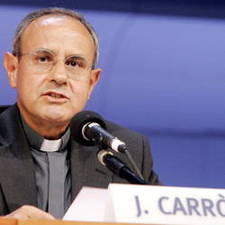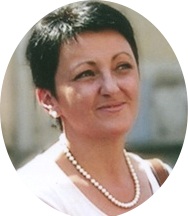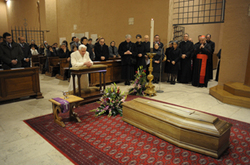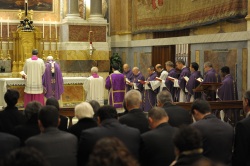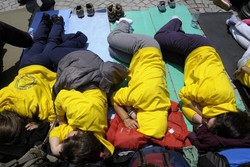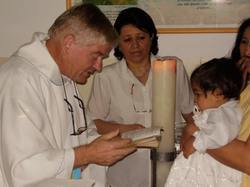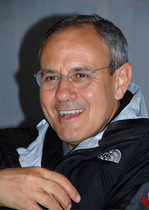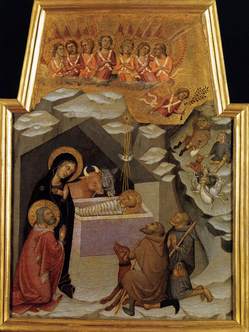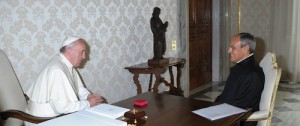 Milan, October 16, 2013
Milan, October 16, 2013
Dear friends,
On Friday, October 11th, I had the grace of being received in a private audience by Pope Francis. I experienced in person what we have been seeing for months, every time that he appears in public—the extreme familiarity of his entering into a relationship with the individual, even in the midst of enormous crowds.
Thus I was able to tell him about the journey that we have made in the years since Fr. Giussani’s passing. I emphasized that all of our effort was and is in function of the personalization of faith, as the only condition for being able to live, in daily reality, that newness of life that fascinated us.
At these words, the Pope went immediately to that which constitutes his fundamental concern—that every man, no matter the situation in which he finds himself, can be reached by the Christian announcement, by the mercy and the tenderness of Christ. For this reason, he insisted on the need for witness, that is, the necessity to go to meet the others—in the face of the temptation to close ourselves in defensive positions, incapable of responding to the urgency of the transmission of faith—observing that it will not be the mere “restoration” of past forms that will render Christianity present for the man of today.
I was amazed to read this week, in the Pope’s speech to the Plenary of the Pontifical Council for Promoting New Evangelization, some of the concerns that had emerged in our dialogue, and I would like to share them with you.
1) First of all, Pope Francis reminds everyone of the fact that “new evangelization” means “to reawaken the life of faith in the hearts and minds of our contemporaries. Faith is a gift from God, but it’s important that we Christians show that we live faith in a concrete way, through love, harmony, joy, suffering, because this raises questions, just as it did at the beginning of the Church’s journey: Why do they live like this? What drives them? These are questions that go to the heart of evangelization, which is the witness of faith and charity. What we need, especially now, are credible witnesses who make the Gospel visible with their lives, and also with their words, who reawaken the attraction for Jesus Christ, for the beauty of God… We need Christians who make God’s mercy, His tenderness for every creature, visible to the men of today.”
2) Thus he went on to the second aspect: “The encounter, going to meet the others. New evangelization is a renewed movement toward those who have lost faith and the profound meaning of life. This dynamism is part of Christ’s great mission to bring life into the world, to bring the Father’s love to humanity. The Son of God ‘left’ His divine condition and came to meet us. The Church is within this movement; every Christian is called to go to meet the others, to dialogue with those who have different beliefs, with those who have another faith, or who have no faith. To meet everyone, because we all have in common that we were created in the image and likeness of God. We can go to meet everyone, without fear and without giving up our belonging.”
3) Finally, he invited us to recognize that “all of this, however, is not left to chance or improvisation in the Church. It requires a common commitment to a pastoral project that recalls the essential and that is well centered on the essential, that is, on Jesus Christ. It’s of no use to get lost in many secondary or superfluous things; we must concentrate on the fundamental reality, which is the encounter with Christ, with His mercy and His love, and love our brothers and sisters as He loved us.” This “pushes us to travel new paths, with courage, without becoming fossilized! We could ask ourselves: How is the pastoral life in our dioceses and parishes? Does it make visible the essential, that is, Jesus Christ?”
I ask you to embrace Pope Francis’ question as directed at us—particularly at us, who were born only for this, as all of Fr. Giussani’s life witnesses. Does each of us, each community of our Movement, “make visible the essential, that is, Jesus Christ?”
Pope Francis confided to me that he met the Movement in Buenos Aires at the beginning of the 1990s, and that this discovery was “fresh air” for him. And this brought him to read Fr. Giussani’s texts often, because what he found in Giussani was helpful to his Christian life. Imagine how moved I was to hear these things from the man who today is the Bishop of Rome!
The Pope encourages us to live the nature of our charism personally, in the communion among ourselves, because a movement like ours is called to respond to the needs of this moment in the life of the Church and of the world.
From the closeness and familiarity of Pope Francis comes, for me and for all of us, friends, a new responsibility before God and the Church.
After having furnished the Pope with some facts about our reality—for example, regarding our presence in universities, schools, and various environments of life and work; our many attempts to respond to the needs that we intercept with gestures of charity; and the grace of the vocations to both the priesthood and consecrated life in its various forms—we took leave of each other, but not before he asked me to pray for him.
Obviously, this invitation was directed at me and at all of the Movement. For this reason, I ask you to take his request seriously, in offering and in prayer for Pope Francis every day, that God continue to give him the grace necessary to guide His Church.
And for each of us, let’s ask the Lord for the simplicity to surrender constantly to His voice, which has reached us through the unique accent of our dearest Fr. Giussani, and which continues to call us with the intensity of Pope Francis.
Full of affection, I embrace each one of you.
Fr. Julián Carrón
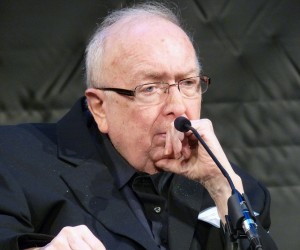 Monsignor Albacete’s life is fulfilled today in front of the merciful Presence of the Mystery who makes all things, and it blossoms in the gladness that we always saw in him.
Monsignor Albacete’s life is fulfilled today in front of the merciful Presence of the Mystery who makes all things, and it blossoms in the gladness that we always saw in him.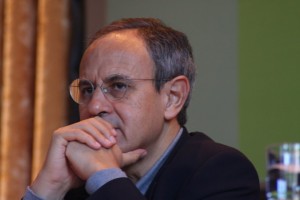 Let us all pray together and personally that we may strive to live like he witnessed, so that we can inherit his legacy of how to follow the Movement within the Church.
Let us all pray together and personally that we may strive to live like he witnessed, so that we can inherit his legacy of how to follow the Movement within the Church.

